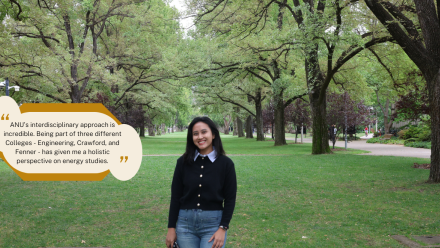Young Aussies satisfied with direction of country amid voter power shift
Despite cost-of-living pressures and sky-rocketing house prices disproportionately impacting Australia’s youth, two-in-three young Aussies, 67.1 per cent, say they are satisfied with the direction of the country, but trust in the Albanese government has declined since 2022, according to a from The Australian ľ«¶«´«Ă˝app University (ANU).
With Gen Z and Millennial voters projected to be a dominate voting force at the polls come the 2025 federal election, the study found almost half of respondents aged 18 to 34 years, 47 per cent, have quite a lot or a great deal of confidence in the federal government. This falls to 42.5 per cent for those aged 35 to 54.
“Just over 60 per cent of those who have not completed Year 12 are satisfied or very satisfied with democracy. This rises to 62.6 per cent for those who have completed Year 12 but do not have a degree, compared to 69.2 per cent of those with a degree,” study lead author Professor Nick Biddle said.
The ANU study of more than 3,500 Australians forms part of the first wave of findings from the 2025 Election Monitoring Survey Series (EMSS). The study was conducted in October 2024.
“More than three-in-five Australians report that they are satisfied or very satisfied with the direction of the country, rising to more than two-thirds for those aged 18 to 34 years,” Professor Biddle said.
“While dissatisfaction is not as low as in other countries, it is worth noting that dissatisfaction around 6 months out from the next federal election, if Parliament goes to full term, is more or less the same as dissatisfaction was in April 2022, just prior to the Morrison government losing the subsequent election.”
In the lead-up to the 2025 federal election, the study found the Liberal Party has the highest favourability rating of the four major parties.
“Despite a lower favourability rating for the Labor Party compared to the Liberal Party, respondents rate Prime Minister Anthony Albanese significantly higher than Opposition Leader Peter Dutton, whereas the Greens leader Adam Bandt has the lowest rating of all party leaders,” Professor Biddle said.
According to the study, although Australians are mostly satisfied with the direction of the country in general, trust in the federal government has declined since the Albanese government was elected to power in 2022.
"Only 37.8 per cent of Australians have quite a lot or a great deal of trust in the Albanese government," Professor Biddle said.
It also found that nearly half of respondents, 48.8 per cent, agree or strongly agree that politicians are corrupt.
“Comparing data from the EMSS to past surveys, almost half of respondents, 48.1 per cent, have little to no trust in the federal government, up from 42.1 per cent in 2023 and 40.4 per cent in 2022,” Professor Biddle said.
“Trust varies significantly by education, with higher trust levels observed amongst those with a university degree.
“Those with relatively low levels of education are also far more disengaged with politics. Only 39 per cent of those that haven’t completed Year 12 say they are quite interested or very interested in politics.
“This is compared to 49.5 per cent of those that have completed Year 12 and don’t have a degree, and 58.5 per cent of those who have a degree.”
The study found more than three-in-ten Australians report finding it difficult to get by on their current income, with younger and middle-aged groups particularly affected.
“Financial stress correlates with lower satisfaction with democracy and reduced political trust. Similarly, loneliness, experienced by 42 per cent of Australians in some capacity, aligns with disengagement from politics and institutions,” Professor Biddle said.
The study also found that females are more likely to say that they are unsure who they would vote for in the lead up to the 2025 federal election – 12.1 per cent compared to 6.7 per cent of males.
“Given the requirements around compulsory voting in Australia, who these individuals end up voting for may end up having a large impact on the 2025 federal election outcome,” Professor Biddle said.
The aims to collect data on Australians’ political attitudes during and after the 2025 federal election, to track changes in voter beliefs over the election period.


